Do You Need to Wash Farm Fresh Eggs? – Introduction:
Farm-fresh eggs, collected straight from the coop, are often prized for their superior taste and freshness. However, when it comes to handling these eggs, there’s often a debate about whether they need to be washed before use. Let’s delve deeper into this topic and explore the reasons behind washing or not washing farm-fresh eggs.
The question of whether to wash farm-fresh eggs is a topic of debate among farmers and consumers. Eggs naturally have a protective coating called the bloom, which seals the shell pores and reduces the risk of contamination.
However, if eggs come into contact with dirt or feces, washing may be necessary. Regulatory guidelines vary by country, with some requiring commercial eggs to be washed, while others allow direct farm sales without washing. Personal preference also plays a role, with some people opting to wash eggs for cleanliness, while others believe it compromises their natural protective coating. Ultimately, the decision to wash farm-fresh eggs depends on factors such as local regulations, personal preference, and the cleanliness of the eggs at the time of collection.
1. Eggshell Protection:
The eggs laid by hens are naturally coated with a protective layer called the bloom or cuticle. This thin coating seals the eggshell’s pores, acting as a barrier against bacteria and preventing moisture loss from the egg’s contents. The bloom is nature’s way of safeguarding the egg and maintaining its freshness.


2. Contamination Concerns:
While the bloom provides effective protection, farm-fresh eggs can still become soiled with dirt, feathers, or other debris from the hen’s environment. Nesting materials, such as straw or shavings, may stick to the eggs, and occasionally, eggs can be soiled with fecal matter. This external contamination raises concerns about potential bacterial contamination, including Salmonella.
3. Washing Techniques:
If you opt to wash farm-fresh eggs, it’s crucial to do so carefully to avoid compromising their quality. Use lukewarm water (warmer than the egg’s internal temperature but not hot enough to cook it) and a gentle abrasive, such as a brush or sponge, to remove any dirt or debris. Avoid using harsh detergents or soaps, as these can strip away the protective bloom and leave the eggs susceptible to bacteria.
4. Refrigeration Considerations:
After washing, thoroughly dry the eggs to prevent moisture from seeping through the shell, which can promote bacterial growth. Once clean and dry, refrigerate the eggs promptly to maintain their freshness. Refrigerated eggs can remain safe for consumption for several weeks, provided they are stored properly.
5. Personal Preference and Risk Assessment:
The decision to wash farm-fresh eggs ultimately comes down to personal preference and risk assessment. Some individuals prefer to wash all eggs as a precautionary measure, especially if they’re uncertain about the cleanliness of the eggs or if they’ve been soiled. Others may feel comfortable using unwashed eggs from clean environments, trusting in the protective properties of the bloom.
If You Don’t Wash Your Chicken Eggs YOU NEED TO HEAR THIS: https://m.youtube.com/watch?v=fUWyZ4iu3Bk&pp=ygUjRG8gWW91IE5lZWQgdG8gV2FzaCBGYXJtIEZyZXNoIEVnZ3M%3D


Conclusion:
Whether you choose to wash farm-fresh eggs depends on various factors, including contamination concerns, personal preferences, and proper washing techniques. While the protective bloom offers natural defense against bacteria, external soiling may necessitate washing for some individuals. By understanding the nuances of egg hygiene and adopting appropriate measures, you can enjoy farm-fresh eggs safely and confidently, whether washed or unwashed.
In conclusion, the debate over whether to wash farm-fresh eggs revolves around balancing the need to maintain cleanliness with preserving the egg’s natural protective bloom. While the bloom serves as a barrier against bacteria, external soiling can still pose contamination risks. Ultimately, the decision to wash eggs depends on personal preferences, risk assessment, and adherence to proper washing techniques. By understanding the factors involved and taking appropriate measures, consumers can enjoy the freshness and flavor of farm-fresh eggs while ensuring their safety for consumption. Whether washed or unwashed, farm-fresh eggs remain a wholesome and nutritious addition to any meal.
More Links :
Ultimate Guide: What to Feed Baby Chickens After Hatching in 2024 for Optimal Growth: https://animfarm.com/what-to-feed-baby-chickens-after-hatching/?amp=1
Saddle Air Sac Chicken Egg: A Peculiar Aspect of Chicken Egg Formation: https://animfarm.com/saddle-air-sac-chicken-egg/?amp=1
What Happens if You Don’t Collect Chicken Eggs? Farming Tips for 2023: https://animfarm.com/what-happens-if-you-dont-collect-chicken-eggs/?amp=1
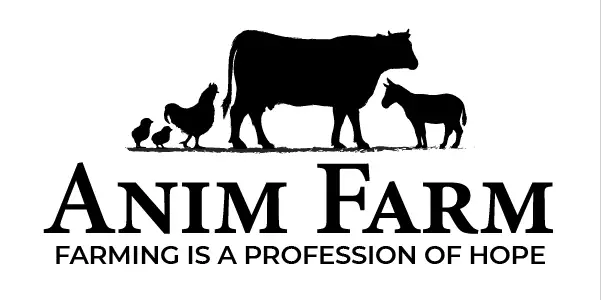
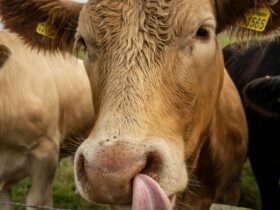
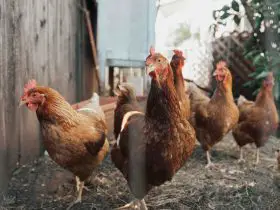

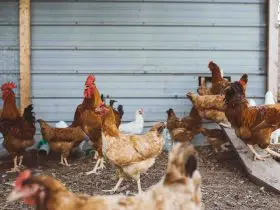



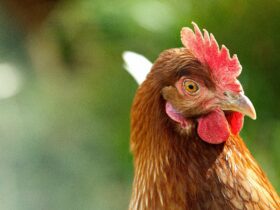
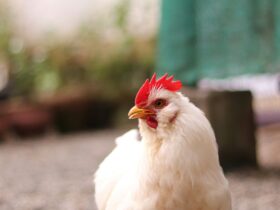


Hello!! Welcome to Anim Farm